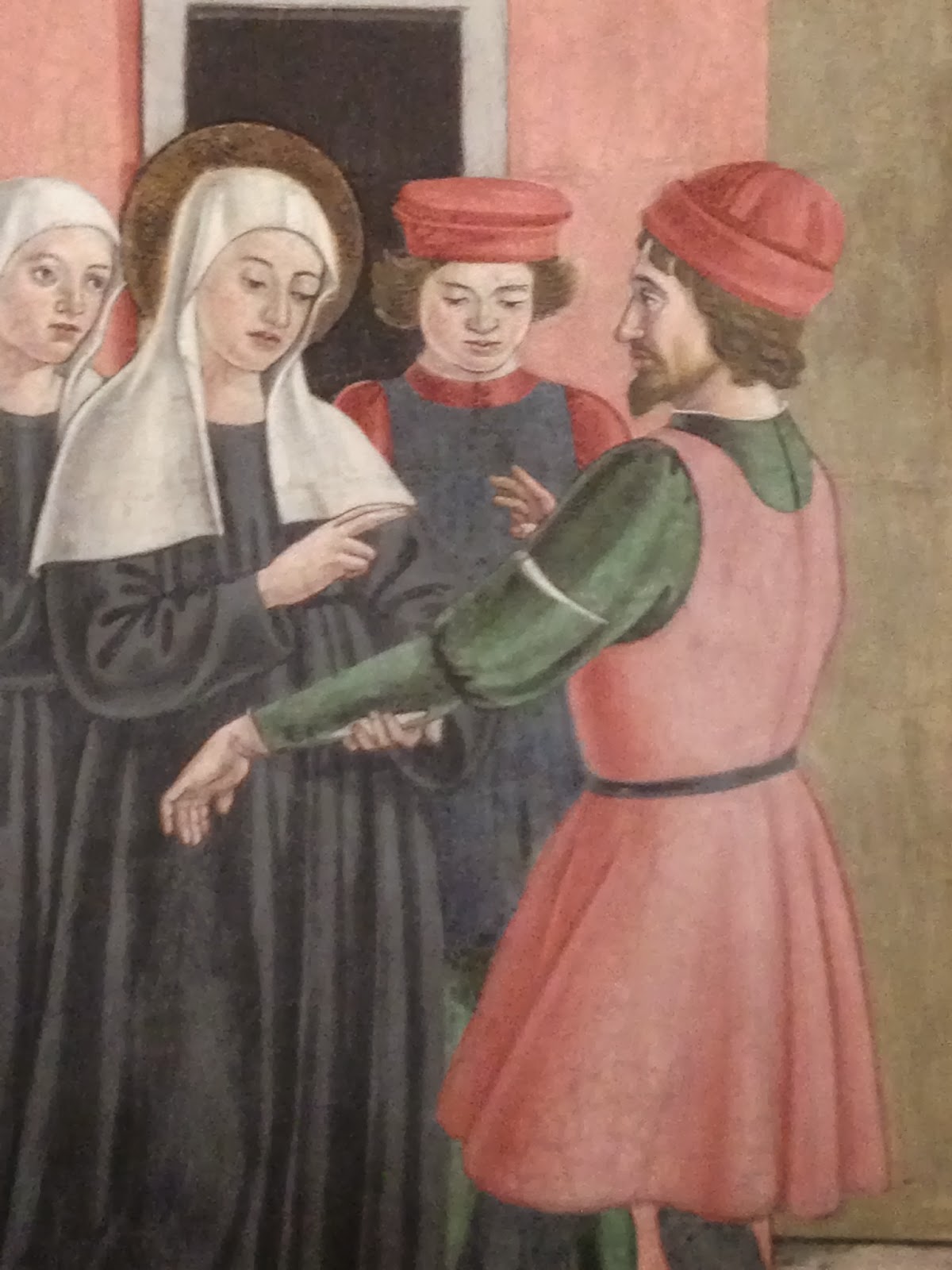Let me preface this post by saying that you know you're an art nerd when you get so excited about the once-a-year display of the frescoes of a little-known early Renaissance painter that you get up at 6:30 on a Sunday to see them (even when you've seen them twice before). So yes, I qualify. What about you? If you go nuts about Renaissance art, and you love to discover art that few people ever get the chance to see, then today is your lucky day.
Only in Rome, a city so bursting with
artistic and archeological treasures that a lifetime is literally not enough to
see them all, could there exist so many untold masterpieces hiding behind
closed doors. Take a stroll through the historic center, and chances are a
dozen or more world-class works of art will be just beyond your grasp, hidden away
in private collections, deconsecrated churches, or impregnable palaces.
One place where this is definitely the case is the convent of Santa Francesca Romana. Just around the corner from bustling Piazza Venezia, and a few steps from the imposing Theater of Marcellus, the dull, brown two-story building is unlikely even to spark your attention, let alone hint at the wonders lurking inside. Closed to the public 364 days of the year, not many visitors to Rome are granted access to its marvels, but if you happen to be in town on 9 March, you are in luck.
One place where this is definitely the case is the convent of Santa Francesca Romana. Just around the corner from bustling Piazza Venezia, and a few steps from the imposing Theater of Marcellus, the dull, brown two-story building is unlikely even to spark your attention, let alone hint at the wonders lurking inside. Closed to the public 364 days of the year, not many visitors to Rome are granted access to its marvels, but if you happen to be in town on 9 March, you are in luck.
Santa Francesca Romana was a 15th-century
Roman wife, mother, and noblewoman. Despite her elevated station in life, she
was known for her humility, piety, and strength of faith in the face of a
number of personal tragedies. She founded the religious institution the Oblate
di Tor de’ Specchi, where she became the Mother Superior after her husband’s
death, and was later canonized by Pope Paul V. Nearly 6 centuries later, the 9
March passing of this well-loved Roman lady is remembered every year with the one-day
opening of her convent to the public.
Don’t let the line stretching down the
street discourage you from visiting this extraordinary site. Unlike many
medieval buildings in Rome, the remarkable convent is completely untouched by
the advances of time. The interior walls were frescoed in 1468 by Antoniazzo
Romano, now considered the first great Renaissance artist of the Roman school.
The 25 bright and detailed panels, entirely covering the walls of the main room,
depict scenes from the life of the saint and provide an important visual
testimony to urban 15th-century Rome. To the further delight of
historians, each panel is accompanied by a caption written in an early example
of Rome’s vernacular dialect.
Don’t miss this chance to see this
well-preserved example of early Renaissance art in Rome, one of the city’s
truly hidden gems. But my advice is to get there early. Since 9 March falls on a Sunday this month, there are likely to be bigger crowds!
Here are a few images I snapped last year.
Santa Francesca Romana was quite the healer. These frescoes are bloody, but in a good way. And it seems that everyone who had contact with the saint had a happy ending.

Has this guy just gotten his legs waxed? Call me silly, but that is truly what it looks like.
9
March. 8:30am–12:30pm and 2:30–7:30pm. Via del Teatro di Marcello, 32. Tel
066797135. Free entry.






